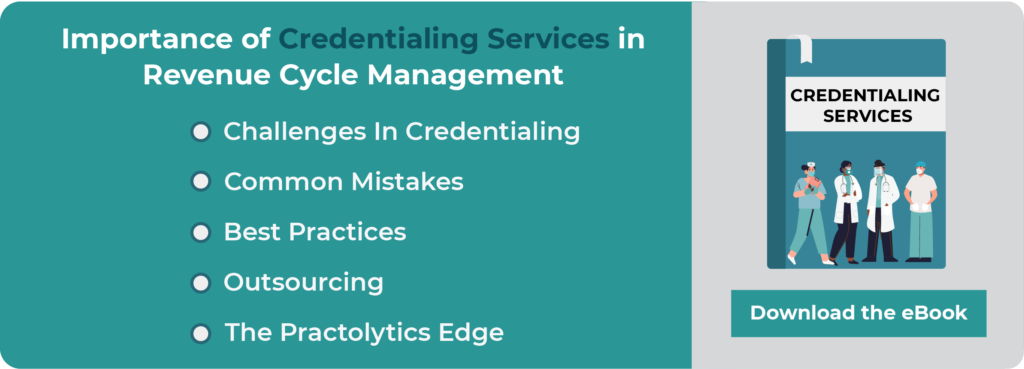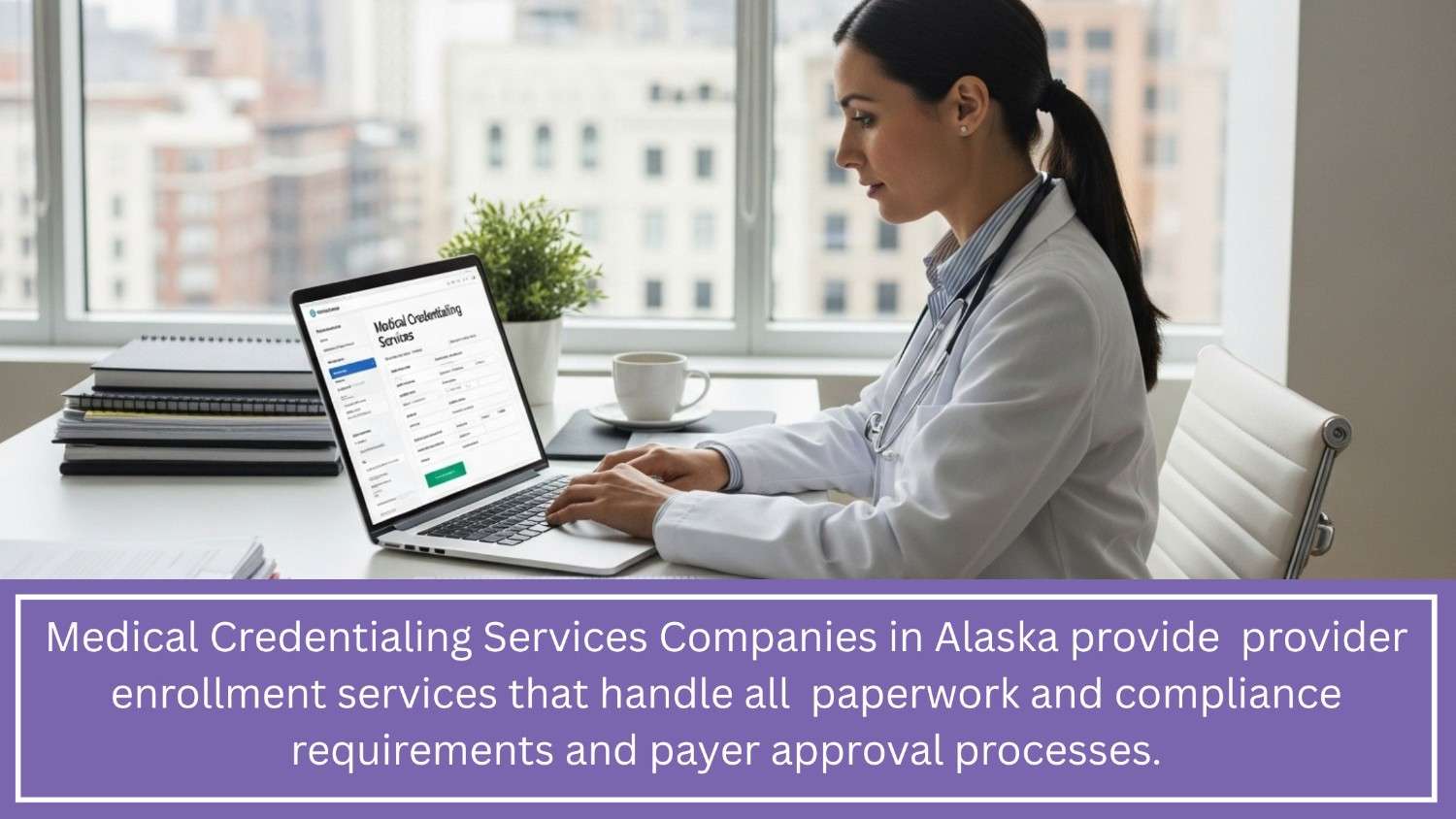Employee Retention and Career Advancement in Healthcare
Retaining talent and fostering growth propel healthcare organizations forward in today’s cutthroat market. Career progression and staff loyalty fuel success. Credentials showcase healthcare workers’ expertise and dedication. Providers and staff must meet strict standards. They must update their skills to ensure excellent patient care. Regular updates are essential for maintaining high standards in patient care. These rigorous requirements prove qualifications and show a commitment to excellence in medicine. Effective credentialing processes ensure compliance and patient safety. They also boost employee satisfaction and career growth. Organizations that streamline credentialing often see higher retention and better engagement.
This blog explores how Healthcare credentialing affects employee retention and career advancement in healthcare. It looks at both direct and indirect effects. It offers insights on how healthcare organizations can optimize these processes. This can help support their workforce and meet their goals.
Table of Contents
Comprehending Healthcare Credentialing
The credentialing process verifies the educational background, documents, licenses, and qualifications of a healthcare provider. This process is vital. It ensures compliance audits with regulations, payer requirements, and policies. Credentialing affects an employee’s ability to practice, claim reimbursements, and advance.
For employees, seamless hospital credentialing services processes provide:
- Assurance of career growth opportunities.
- Recognition of expertise and competence.
- Clarity on institutional expectations and standards.
For employers, strong medical credentialing services reduces risks. It improves service quality and builds a trusted workforce.
Connection Between Credentialing and Employee Retention
Retention in healthcare is tough. The sector has high stress, burnout, and a demand for skilled professionals. Effective credentialing processes play a pivotal role in fostering employee satisfaction and loyalty.
1.Streamlining Administrative Processes
Best Medical Credentialing Companies can often feel burdensome, with redundant documentation and lengthy verification steps. Automated tools and expert services can simplify this process. They can reduce stress and improve the employee experience.
Impact on Retention: Employees are more likely to stay in firms that support them and are free of red tape. A seamless credentialing experience communicates respect for their time and effort.
2.Supporting Professional Development
Insurance Credentialing Services serves as a foundation for acquiring new skills and certifications. Employers who help employees update their credentials foster a culture of learning.
Impact on Retention: Professionals value employers who invest in their career advancement. Offering credentialing support enhances employee morale and strengthens organizational loyalty.
3.Reducing Practice Interruptions
Credentialing delays can disrupt practice. They jeopardize patient care and revenue. For employees, these interruptions can cause frustration and uncertainty.
Impact on Retention: Efficient Medical credentialing processes reduce employee dissatisfaction and attrition. They ensure continuity.
4.Enhancing Job Security
Regular credentialing reassures employees of their professional standing. It minimizes the risk of compliance lapses, which can jeopardize their employment.
Impact on Retention: If employees trust their employer’s up-to-date credentialing, they feel secure. They are less likely to seek other opportunities.
How Credentialing Influences Career Advancement
Healthcare professionals must meet changing industry standards to advance their careers. medical insurance credentialing services opens new opportunities. It lets employees grow their skills and take on leadership roles. They can also specialize in niche areas.
1.Facilitating skill development
Professionals are urged to pursue credentialing for access to advanced training and education. Their portfolios gain value from certifications in management, telemedicine, or advanced clinical procedures.
Career Impact: Advanced degrees lead to better promotions, pay, and jobs.
2.Meeting Market Demands
The healthcare field is changing. New areas include telehealth, value-based care, and data-driven medicine. Credentialing in these areas helps professionals meet market demands. It also helps them advance their careers.
Career Impact: Organizations that help employees get in-demand credentials attract ambitious professionals. This boosts innovation and career growth.
3.Increasing Employability
Professionals with impressive credentials are in great demand from both employers and payers. An individual’s commitment to delivering exceptional care is evident in their credentials.
Career Impact: Supporting employees’ credentials boosts their employability and credibility.
4.Building Leadership Pipelines
Leadership positions in healthcare organizations frequently need credentialing. It exhibits a person’s proficiency, responsibility, and dedication to company objectives.
Career Impact: Credentialing support builds a pipeline of skilled talent. It cultivates future leaders within the organization.
Challenges in credentialing and their impact on retention and advancement
Credentialing has many benefits. But, poor processes can cause dissatisfaction and missed opportunities.
1.Time-Intensive Procedures
Credentialing often involves extensive paperwork, manual follow-ups, and prolonged verification periods.
Impact: Delays can frustrate employees, hinder career progress, and lead to burnout.
2.Lack of Organizational Support
When employees must navigate credentialing processes alone, it increases their workload and stress.
Impact: A lack of institutional guidance can erode trust and increase turnover rates.
3.Compliance Risks
Missed deadlines or incomplete documents can lead to license suspensions or enrollment issues.
Impact: Workers who experience these difficulties could feel discouraged and unsupported.
Methods for Improving Credentialing for Promotion and Retention
Companies can lessen these difficulties by taking the following proactive steps:
1.Centralize Credentialing Management
A centralized system for managing credentials streamlines data storage, tracking, and renewals.
Benefits:
- Reduces errors and redundancies.
- Improves efficiency and transparency.
2.Automate Credentialing Workflows
Automation tools handle repetitive tasks, like document submissions and deadline reminders.
Benefits:
- Saves time for both employees and administrators.
- Minimizes the risk of missing deadlines.
3.Provide credentialing support services
Offer dedicated resources to assist employees with credentialing. Partnering with experts like Practolytics can simplify processes and enhance employee satisfaction.
Benefits:
- Reduces employees’ workload.
- Ensures accurate and timely submissions.
4.Foster a culture of professional growth
Encourage employees to pursue advanced certifications and provide financial or logistical support.
Benefits:
- Enhances workforce skills.
- Builds loyalty and engagement.
5.Stay Updated on Regulatory Changes
Keep employees informed about evolving credentialing requirements and industry standards.
Benefits:
- Ensures compliance.
- Reduces uncertainty and stress.
How Practolytics Can Help
Practolytics specializes in streamlining credentialing processes, offering end-to-end solutions for healthcare organizations. Our services include:
- Credentialing management for compliance and payer enrollment.
- Automation of credentialing workflows to reduce manual errors.
- Expert support for navigating complex regulatory requirements.
Partnering with Practolytics can help healthcare organizations. It will empower their workforce, reduce admin work, and let them focus on patient care.
Conclusion
Credentialing is more than a compliance need. It is vital for employee retention and career advancement in healthcare. Streamlined credentialing can help organizations. It fosters a supportive work environment. It boosts employee satisfaction. It builds a skilled, loyal workforce.
With the right tools and expert support, credentialing can boost success. It can benefit both individuals and organizations. Partnering with Practolytics makes your credentialing efficient and compliant. It will also support long-term growth.
ALSO READ – Charting the Future: Navigating 2024’s Healthcare Credentialing with Practolytics
Talk to Medical Billing Expert Today — Get a Free Demo Now!






